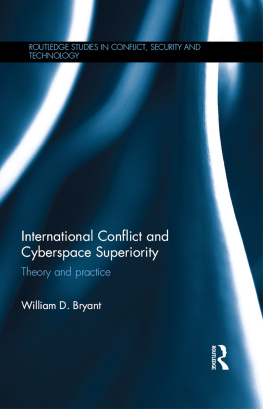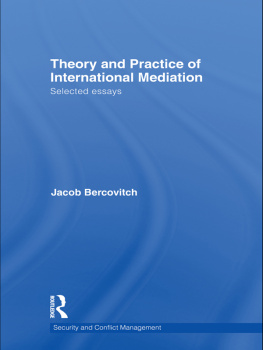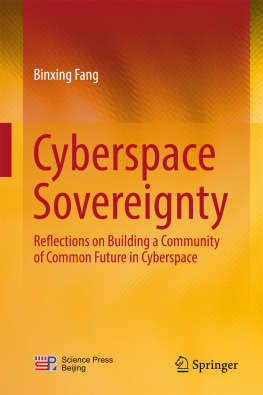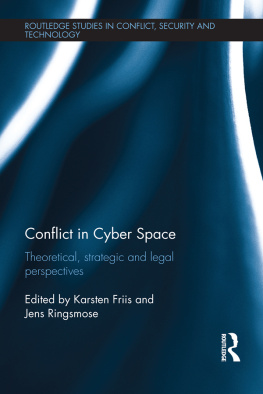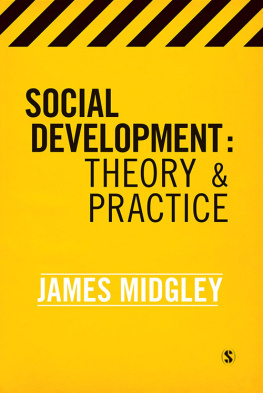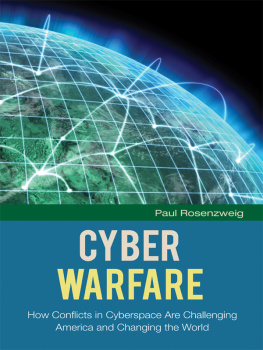International Conflict and Cyberspace Superiority
This book examines cyberspace superiority in nation-state conflict from a theoretical and a practical perspective.
This book analyzes superiority concepts from the domains of land, maritime, and air to build a model that can be applied to cyberspace. Eight cyberspace conflicts between nation-states are examined and the resulting analysis is combined with theoretical concepts to present the reader with a conclusion. Case studies include the conflict between Russia and Estonia (2007), North Korea and the U.S. and South Korea (2009) and Saudi Arabia and Iran in the Aramco attack (2012). The book uses these case studies to examine cyberspace superiority as an analytical framework to understand conflict in this domain between nation-states. Furthermore, the book makes the important distinction between local and universal domain superiority, and presents a unique model to relate this superiority in all domains, as well as a more detailed model of local superiority in cyberspace. Through examining the eight case studies, the book develops a rigorous system to measure the amount of cyberspace superiority achieved by a combatant in a conflict, and seeks to reveal whether cyberspace superiority proves to be a significant advantage for military operations at the tactical, operational, and strategic levels.
This book will be of much interest to students of cyber conflict, strategic studies, national security, foreign policy and IR in general.
William D. Bryant is a career fighter pilot and has a PhD from the School of Advanced Air and Space Studies, Maxwell, USA.
Routledge Studies in Conflict, Security and Technology
Series Editors: Mark Lacy, Dan Prince, Sylvia Walby and Corinne May-Chahal, Lancaster University
The Routledge Studies in Conflict, Security and Technology series aims to publish challenging studies that map the terrain of technology and security from a range of disciplinary perspectives, offering critical perspectives on the issues that concern public, business and policymakers in a time of rapid and disruptive technological change.
Nonlinear Science and Warfare
Chaos, complexity and the U.S. military in the information age
Sean T. Lawson
Terrorism Online
Politics, law, technology
Edited by Lee Jarvis, Stuart Macdonald and Thomas M. Chen
Cyber Warfare
A multidisciplinary analysis
Edited by James A. Green
The Politics of Humanitarian Technology
Good intentions, unintended consequences and insecurity
Katja Lindskov Jacobsen
International Conflict and Cyberspace Superiority
Theory and practice
William D. Bryant
International Conflict and Cyberspace Superiority
Theory and practice
William D. Bryant
First published 2016
by Routledge
2 Park Square, Milton Park, Abingdon, Oxon OX14 4RN
and by Routledge
711 Third Avenue, New York, NY 10017
Routledge is an imprint of the Taylor & Francis Group, an informa business
2016 William D. Bryant
The right of William D. Bryant to be identified as author of this work has been asserted by him in accordance with sections 77 and 78 of the Copyright, Designs and Patents Act 1988.
All rights reserved. No part of this book may be reprinted or reproduced or utilized in any form or by any electronic, mechanical, or other means, now known or hereafter invented, including photocopying and recording, or in any information storage or retrieval system, without permission in writing from the publishers.
Trademark notice: Product or corporate names may be trademarks or registered trademarks, and are used only for identification and explanation without intent to infringe.
British Library Cataloguing-in-Publication Data
A catalogue record for this book is available from the British Library
Library of Congress Cataloging-in-Publication Data
Bryant, William D. (Career Fighter Pilot)
International conflict and cyberspace superiority : theory and practice / William D. Bryant.
pages cm. (Routledge studies in conflict, security, and technology)
Includes bibliographical references and index.
ISBN 978-1-138-91891-7 (hardback : alk. paper) ISBN 978-1-315-68818-3
(ebook : alk. paper) 1. CyberspacePolitical aspects. 2. Social conflict.
I. Title.
HM851.B79 2015
303.4834dc23
2015006411
ISBN: 978-1-138-91891-7 (hbk)
ISBN: 978-1-315-68818-3 (ebk)
Typeset in Baskerville MT
by Keystroke, Station Road, Codsall, Wolverhampton
Every effort has been made to contact copyright holders for their permission to reprint material in this book. The publishers would be grateful to hear from any copyright holder who is not here acknowledged and will undertake to rectify any errors or omissions in future editions of this book.
Contents
The importance of cyberspace continues to grow in the modern world. Now it is not just the computer under the desk that is part of cyberspace. We are connecting our cars, phones, kitchen appliances, and even toilets to cyberspace. These connections allow increases in functionality and productivity unimaginable even in the realm of science fiction just a few years ago. Todays iPhone makes a Star Trek communicator look like a cavemans rock abacus, but the iPhone is the one that actually exists. Unfortunately, just like a Star Trek ships computer runs amok, our devices may be working against us.
There is a dark side to this ever-increasing connectivity and functionality. Our iPhone can be spying on us and reporting our every move to a foreign intelligence service, our car might be reporting our location to an enemy, and malicious hackers can even take over our humble toilet to humiliate us.1 Action from cyberspace is not only limited to malicious pranks. Hackers have demonstrated the ability to send potentially lethal commands to common cars, such as the Toyota Prius. One pair of enterprising hackers has demonstrated the capability to blast the horn uncontrollably, make pathological liars out of speedometers and odometers, spoof the GPS, and even violently jerk a Prius steering at any speed, threatening a potentially lethal collision.2 These threats and vulnerabilities become even more magnified as you look at cyberspace systems on the municipal or national level.
Cyberspace is increasingly becoming an arena for nation state conflict. If a nation were to drop a bomb on an enemy power plant, the target nation would consider it an act of war. If the same nation sent a logic bomb through cyberspace causing the same amount of damage to the power grid, that is also war. The delivery method does not change the physical effect of the attack. Analysts are increasingly accepting cyberspace as a domain, or discrete region, where combatants fight, much like the domains of land, maritime, air, and space. According to former National Security Council Director for Cyber Security, Gregory Rattray, a goal of U.S. national strategy is to gain control of cyberspace.3 The nature of warfare has not changed, but now there is a new field to fight on, much like when aircraft first opened up the air domain to warfare in the early 1900s. Although the majority of analysts have accepted cyberspace as a domain of warfare, there are some dissenting voices.
I agree with the majority of analysts who think that treating cyberspace as a domain is useful. One well known analyst that takes the opposing view is Martin Libicki who proposes that thinking of cyberspace as a domain causes cyberspace operators to apply inappropriate warfighting concepts at the expense of other paradigms such as systems engineering.4 There are many reasons I think warfighting is a better mental template for conflict in cyberspace than systems engineering or any other proposed construct, but the most important is that cyberspace conflict is fundamentally human conflict in a new medium. Computers are not attacking each other and trying to steal other computers information, people are attacking each other and trying to steal other peoples information using computers. This means that the classic illustration of conflict by Carl von Clausewitz of two wrestlers dynamically reacting to each other applies as much in cyberspace as in the other physical domains.5 I contend that thinking of cyberspace as a warfighting domain is far more helpful than thinking of it as an engineering problem and I will more fully develop this topic throughout this book. Some analysts dont argue that cyberspace is not a domain, they instead argue that war in cyberspace will not happen.


